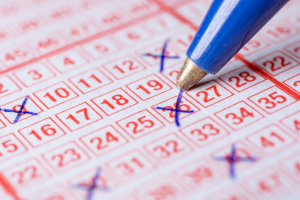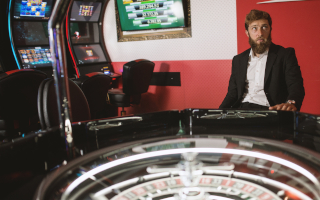The gambling paradox
The ability to correctly estimate the probability of occurrence of certain events is one of the key factors determining whether the bookmaker bets are profitable. However, this art is not easy, and one of the most common mistakes that players make is the gambler's paradox. What is the gambler's paradox in betting, other gambling and in life, and how to avoid it, we explain below.

The Gambler's Paradox – What is it?
The Gambler's paradox is most often discussed in the context of games of chance, such as roulette or craps, but it can manifest itself in any area of life. Other names for this error are the Monte Carlo paradox ,the player's $ award, or the $ award of Alexei Ivanovich (the hero of Fyodor Dostoevsky's novel The Player). But what is this$$?
Most generally speaking, the gambler's paradox is a logical and cognitive error, as a result of which completely independent events are treated as dependent events . Most often, this is a situation where we are dealing with a series of the same events – the paradox of The Gambler is then that it seems to us that the occurrence of an event that will continue the series is less likely than the opposite event, that is, one that will end the series .
The gambling paradox-examples
To understand exactly what the gambler's paradox is, let's look at specific examples.
The Gambler's Paradox and the coin toss
 Let's start with a simple coin flip. As you know, the probability of an eagle falling out is the same as the probability of a head falling out, that is, in both cases it is 50%. When it comes to the first throw, the matter is obvious, but what about the situation when we are talking about a series of throws? Let's say we saw a head on the next nine attempts... the situation is strange, because, judging by the calculations, we could expect more even results. So, since nine shots in a row have already fallen on the head, does it not seem more likely now that in the next approach an eagle will finally fall? If that's what you're thinking, then you've got the gambler's paradox.
Let's start with a simple coin flip. As you know, the probability of an eagle falling out is the same as the probability of a head falling out, that is, in both cases it is 50%. When it comes to the first throw, the matter is obvious, but what about the situation when we are talking about a series of throws? Let's say we saw a head on the next nine attempts... the situation is strange, because, judging by the calculations, we could expect more even results. So, since nine shots in a row have already fallen on the head, does it not seem more likely now that in the next approach an eagle will finally fall? If that's what you're thinking, then you've got the gambler's paradox.
The error in this course of reasoning is that we depend the result of a given throw on the result of other throws independent of it. The probability of tossing the heads is the same for each single throw and is 50% each time – no matter what happened before. Figuratively speaking-our coin has no memory and does not know that during previous attempts it has already shown the same result 9 times.
The Gambler's Paradox and roulette
As for the gambler's paradox, an example that is also often given is taken from roulette. On her wheel there are 18 red and 18 black fields and zero. If you do not take into account the latter, the chances of getting a red field are the same as black. However, this does not mean that it cannot happen that for many consecutive rounds the ball will not stop ($dazzle) on the same color. If such a series occurs, it naturally seems that the next throw will interrupt it, because the series must end sometime. Nothing like that. The series will probably not last forever and you have to agree with that, but not necessarily in the next roll – in this the chances of a black and red field are still the same.
In 1913, Black was dropped 26 times in a row at a casino in Monte Carlo, resulting in the loss of entire fortunes for many players who believed the series would end in the next roll (hence the gambler's Paradox, also known as the Monte Carlo paradox).
The Gambler's Paradox and the lottery
Cash lotteries of the "Lotto" type are games in which real crowds participate, especially when the accumulation is approaching. Some play "missed-hit", others develop whole systems for selecting numbers that should fall in the next draw. Here, The Gambler's Paradox also makes itself felt – players often believe that those numbers that have fallen recently have little chance of being drawn again. In turn, those numbers that have not fallen for a long time, according to them, have a much higher chance that the slot machine will draw them.

Again, this thinking is wrong, because in any draw, the probability of each number being drawn is the same regardless of the results of the previous games . Taking into account the number of balls (for example, in the Classic "Lotto" there are 49 of them, and the number of drawn balls is 6), the case becomes especially absurd.
The gambling Paradox and the law of large numbers
Despite these explanations, some people may still argue that, for example, when a series of heads occurs during a coin toss, an eagle is more likely to fall out for the next roll. They rely on the probability itself. Since, according to his rules, the probability of both results is the same, then a series of tails somehow "exhausts their allocation", thanks to which the Eagles should enter the game. According to statistics, both numbers should be balanced! All this is true, but there is one detail – such enumerations are true for large trials, as follows from the theory of large numbers .
This theory says that the more attempts we make, the more the deviation from the probability will decrease . If for 10 shots there were 9 of the same results, we may be surprised, but we are able to accept this, but for such proportions to remain at 100 shots (90 of the same results), we would have to talk about an exceptional situation. In both cases, we have a ratio of 90% to 10%, but while this is possible with a small sample, for larger numbers it becomes an evenement. In the case of even more extensive attempts (for example, 1,000 throws), in principle, such things do not happen in practice. So the fewer attempts, the greater the deviation from the expected value can be, and the more attempts, the more the number of both results should approach the estimated 50%.
In this context, The Gambler's paradox is a fallacy that applies dependencies found in large trials to small trials, often consisting of only a few or a dozen results.
The reverse gambling paradox
It is also worth mentioning what is the phenomenon referred to as o the two-fold gambler's paradox. This kind of thinking error is related to the assertion that an event that is very unlikely can occur only after a huge number of attempts have been made . That is, if the probability of an event occurring is small, then this event will not occur the first, second or third time – on the contrary, we can expect it only after several dozen or several hundred attempts. Here again, the fact that the probability of an event occurring each time remains unchanged and it does not matter what happened before is not taken into account. So even if the probability is 1 in 1,000, it may happen that the first attempt will bring just this result .
 But what might the opposite gambling paradox look like in practice? Let the example again come from casino games, but this time it will be a game on the so-called one-armed bandit. A player who enters the game room just after it opens may not want to start the game, waiting for some time to pass and other players to play on the slots. It assumes that since the probability of winning is not high, then only after the occurrence of a larger number of losers can there be wins. This is known as the reverse gambler's paradox.
But what might the opposite gambling paradox look like in practice? Let the example again come from casino games, but this time it will be a game on the so-called one-armed bandit. A player who enters the game room just after it opens may not want to start the game, waiting for some time to pass and other players to play on the slots. It assumes that since the probability of winning is not high, then only after the occurrence of a larger number of losers can there be wins. This is known as the reverse gambler's paradox.
The Gambler's paradox in betting
At first glance, it may seem that the gambler's paradox is a mistake that players who play purely random games, such as roulette or slot machines, make. In contrast to them, betting is a game in which much depends on the typist himself – it is he who decides each time (at least in the assumption preceded by a sports analysis of the meeting) what result of the match he will bet this time. However, there are situations in which the paradox of the gambler torments the minds of bookmakers as well.
The team's good run must come to an end.
The first case concerns the situation when the selected team or player wins every subsequent meeting (especially if these wins are a surprise, so we are talking about the underdog). 3, 5, 7 matches won-this on the one hand testifies to the good form of the team and should speak for the fact that further bookmakers also bet on his victory. However, often at such a moment, The Gambler's paradox can come to the fore. Our not fully realized feelings and opinions can begin to gain strength, and we then tend to phrases like "every series ends sometime", "no one can win endlessly", etc. Since the team already has so many wins in the account, how about more likely that this time they will lose? A rational judgment of such reasoning would indicate absurdity - and indeed it is nonsense, and The Gambler's paradox is responsible for its creation.
A player's bad streak must end
If the next bookmaker bets are lost, the concept of a $ ej streak appears. If you add the gambler's paradox to this, the player becomes convinced that if there is a "Black Series", then the probability of correctly selected bet increases . Each series must end, and to make up for losses, the player increases the rates of subsequent bets. So he appears here the desire to play which always threatens high losses.
The opposite phenomenon is the belief in a good streak, when the player makes a series of hit bets and becomes convinced of his luck. In this regard, he believes that the next bookmakers will also be happy – he loses vigilance, accuses the betting system used so far, the game system, etc. Thus, in this case, the player forgets that each series ends at some point, but the effect is often the same – the bookies gain, and the player has a zeroed bankroll.
Progressive stacking systems
 There are many systems of progressive betting, but the gambler's paradox is most evident when it comes to systems of decreasing progression (e.g. Martingale, Fibonacci). In the progression of this type of bet, the bet is raised after each lost bet, so that the first win can make up for losses even from a very long series of defeats. This progression is based on the belief that
each series must be interrupted, so the player increases the stakes when he loses
. This is supported by the belief that
the more you lose, the less likely you are to lose again – so it's worth risking more and more.
There are many systems of progressive betting, but the gambler's paradox is most evident when it comes to systems of decreasing progression (e.g. Martingale, Fibonacci). In the progression of this type of bet, the bet is raised after each lost bet, so that the first win can make up for losses even from a very long series of defeats. This progression is based on the belief that
each series must be interrupted, so the player increases the stakes when he loses
. This is supported by the belief that
the more you lose, the less likely you are to lose again – so it's worth risking more and more.
While the assumption that each series ends at some point is true, the problem with Progressive Systems is that a certain win is possible only if 1 condition is met – the player has a huge (preferably unlimited) bankroll. The stakes in progression usually rise very quickly, and even a long series of losers does not guarantee that the next bet will be won – although such a conclusion, of course, suggests the paradox of the gambler.
In practice, it often happens that before this event occurs, the player is already under the bar and there is nothing to continue the game.
It is also worth noting that the gambler's paradox can distort an otherwise quite sensible betting system. For example, a fairly popular game system is progression to draws in which, as a rule, it is about finding a team that often draws and placing a bet on a draw in a match with its participation (if the bet is missed, the next draw is bet at double rate). However, when a player's thinking is distorted by The Gambler's paradox, he can bet on the result of a draw in the matches of those teams that have not drawn for a long time (because someday they will eventually have to draw). This way of thinking is obviously a distortion of the system and there is really little chance that it will produce results. Similarly, you can type the win of a team that has not won for a long time or the defeat of one that recently celebrates triumphs... Well, the bookies will be pleased.
The Gambler's Paradox - How Not to give up?
The Gambler's paradox is a common and very harmful mistake that only bookmakers and other gambling operators benefit from. For players, it means only losses, so let's consider whether it is possible to protect yourself from it.
We already know that we are most exposed to the gambler's paradox then, when some independent events occur in a series and in a short time . If we are betting on a bookmaker and some result is repeated in a short period of time, we involuntarily begin to connect them with each other and subconsciously look for dependencies . Of course, there are emotions, fears and instincts that distort the rational judgment of the case. How can we avoid the mistake of the gambler's paradox? Well, what our mind needs at this point is a reset. The best is take a break from the game go for a walk or do household chores. No matter what we do, it's important to keep your distance from the latest betting sites. Only when we cool down does it make sense to return to the game.
 Also worth it
take special care when it comes to live betting
. When placing bets from the live offer, the player must constantly analyze a lot of data and assess the probability of subsequent events. This can lead to extremely intense emotions. Therefore, especially when playing live, you should try to have
high degree of self-control
. If we only notice thoughts like "what a series, it's impossible to lose so many times, so now I will definitely win" or "so many times they missed, now they just have to hit", we should take a break.
Also worth it
take special care when it comes to live betting
. When placing bets from the live offer, the player must constantly analyze a lot of data and assess the probability of subsequent events. This can lead to extremely intense emotions. Therefore, especially when playing live, you should try to have
high degree of self-control
. If we only notice thoughts like "what a series, it's impossible to lose so many times, so now I will definitely win" or "so many times they missed, now they just have to hit", we should take a break.
In addition, it is best to bypass progressive betting systems by a wide arc. Of course, there are situations in which progression can be very profitable, but the risk it carries is really high. If we already decide to use, for example, progression for draws, we should remember to properly analyze the events and in any case not succumb to actions such as the gambler's paradox.
The gambling paradox is everywhere
As a consolation (or vice versa), it can be added that it is not only players betting on bookmakers or playing other gambling games that need to keep in mind how the gambler's paradox works. Studies have shown that this cognitive error is made by various types of decision makers, such as mi.in. officials, judges, bank employees, headhunters or teachers .
For example, loan applications are more likely to be considered positively if a series of negative decisions have previously occurred. This relationship works both ways, that is, the greater the number of positive decisions, the more likely that the next loan application will be rejected. Procedures, criteria and guidelines are one thing, but next to them there is a large field for the interpretation of the decision-maker, and he is only a c$sheep – and so he can always get the gambler's paradox.


